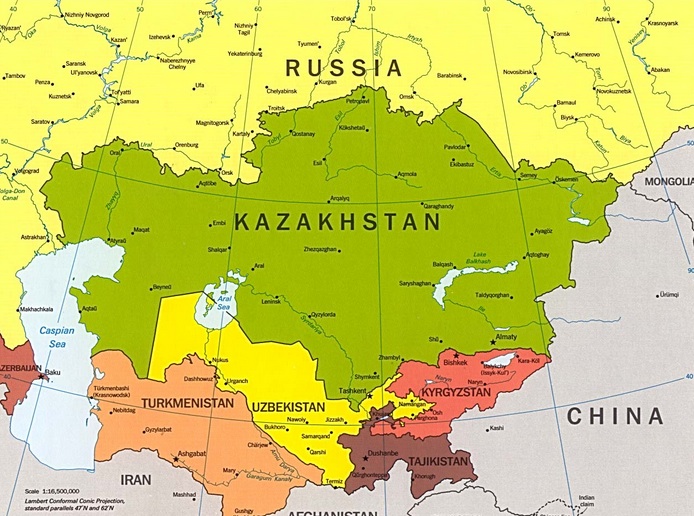Arthur Guschin writes: Until recently, Central Asia played only a modest role in world politics, a reflection of its economic weakness, domestic problems, and distrust of integration. Russia’s presence in the region as the primary political mediator and economic partner was incontestable. In the last few years, though, China’s growing economic interest in Central Asia has come to be seen in Moscow as a threat to its influence. Russia is watching the Silk Road Economic Belt Initiative, which would give Beijing the dominant role and could supplant the Eurasian Economic Union. With Kazakhstan the core state in any integration project in the region, it looks set to become the frontlines of the tussle between China and Russia for regional influence.
Driving Russian policy in Kazakhstan are the activities of four major Russian energy companies: Gazprom, Lukoil, Transneft and Rosneft. These companies allow Moscow to keep Astana within the sphere of Russian interests and help prevent Beijing from dominating Kazakhstan’s economy. Their participation in local energy projects gives Russia access to oil and gas reserves, while binding the two countries in the energy, transport, space and agriculture sectors.
This stable energy partnership is also evident in the gas sector. Two crucial gas pipelines – Central Asia-Center and Bukhara-Ural – that run through Kazakhstan territory let Gazprom expand its resource portfolio and guarantee an uninterrupted gas supply abroad.
As a result of Russian investment over the last fifteen years, Moscow has developed a robust position in Kazakhstan fuel and energy, and guaranteed a consistent transit of energy resources.
Apart from oil and gas, Russia is also competitive in the nuclear industry, and here as well Moscow is seeking to expand its footprint in Kazakhstan.
The Kazakh uranium market is competitive, with France, China, and Japan also involved.
Russia is also investing in the development of Kazakhstan’s traditional power economy, starting with a reconstruction project involving Ekibaztuz-2 coal regional power station, which will add two energy units and increase the overall output to 4.6 billion kWh per year
At this stage, economic collaboration between China and Kazakhstan is backed by Beijing’s efforts in oil and gas field development, as well as in constructing or renovating the pipeline network to meet China’s demand for resources.
China’s national strategy of replacing coal with gas is driving it to diversify its gas supply routes.
However, China is not focusing on oil-gas negotiations alone; it has its eyes on other sectors of the Kazakhstani economy. For instance, China is an important end market for uranium.
China has also extended substantial loans to Kazakhstan, with Astana currently owing Beijing 15.8 billion dollars, almost four times the amount it owes Moscow.
Cooperation between China and Kazakhstan will grow, with both states eager to develop ties in the logistics, communications, and aviation sectors.
The advantage of Russia policy in Kazakhstan lies in the shared heritage in the form of the Soviet Union.
The weakness in Russian policy towards Kazakhstan applies to its Central Asian policy in general: Moscow’s quest for influence in the former Soviet lands comes up against Central Asian states’ insistence on their sovereignty and their unwillingness to accept satellite status. In this case.
The most pressing problem in the Kazakhstan-China-Russia triangle is competition for uranium resources.
The second significant moment in the China-Russia rivalry in Kazakhstan is the question of the next stage of SCO development, in particular, its economic component.
Kazakhstan has a difficult path to walk. On the one side, Russian and Kazakhstani leaders historically have strong ties, which the Eurasian Economic Union seeks to enhance. On the other, Astana is keen to attract Chinese money. China, Russia and Central Asia

